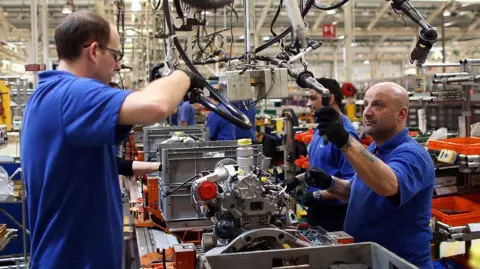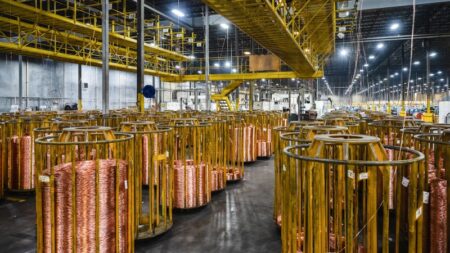**UK Firms to be Protected from Cheap Imports**
In a significant move aimed at bolstering domestic industries, the UK government is set to unveil a new trade plan designed to safeguard local businesses from the growing threat of cheap imports. This decision comes amidst an era of uncertainty for UK businesses, particularly following the introduction of tariffs by the United States. The anticipated initiative will likely focus on enhancing exports while simultaneously reinforcing protections that prevent foreign products from undermining British companies.
The plan, expected to be announced at the annual British Chambers of Commerce (BCC) conference in London, will address the concerns of various sectors that fear domestic markets might be flooded with goods originally intended for the US. For example, steel and car manufacturers worry that expensive US tariffs may incentivize overseas producers to reroute their goods toward less costly markets, including the UK. This changing dynamic poses a risk to local competitors, who may struggle to maintain their market share amid a surge in cheaper imports.
Business Secretary Jonathan Reynolds has assured stakeholders that the new strategy is geared towards ensuring British firms remain protected from potential harm. By promoting a defensive approach to trade and exports, the government aims to create a balanced environment for UK industries to thrive. Nevertheless, navigating this trade landscape may prove complex, as the key to success lies in a nuanced understanding of international trade relations.
A major component of the trade plan involves enhancing government support for exporters. This includes providing financial assistance to businesses seeking to expand internationally and helping them navigate the often complex regulations associated with foreign markets. However, the defense strategy remains critical, especially for vital industries like steelmaking and automobile manufacturing, which are at risk of facing fierce competition from lower-cost international alternatives.
Critically, the UK has not yet imposed high tariffs on electric vehicles manufactured in China, a factor that current regulations on cheap steel imports set to expire in 2026 could potentially exacerbate. As a result, there is a strong urging for measures that safeguard these sectors against an influx of foreign products that would undermine local producers.
At the forthcoming BCC conference, the government is expected to highlight recent successes in fostering international trade relationships, such as the long-awaited free trade agreement with India. This endeavor is seen as an essential step in diversifying the UK’s trading partnerships, especially in light of the increasingly complex trade dynamics with the European Union (EU) following Brexit.
Another focal point of the trade plan consists of addressing longstanding issues surrounding low-value imports. Notably, concerns have been raised about the “de minimis” rule, which allows certain low-value goods to be exempt from taxation when entering the UK. Critics argue that this policy has given overseas companies, such as Shein and Temu, an unfair competitive edge over homegrown retailers, undermining British businesses that adhere to stringent safety and quality regulations.
Andrew Opie from the British Retail Consortium emphasized that swift governmental actions concerning import rules are necessary to protect consumers and level the playing field for local retailers. The limited regulatory checks on imports, especially those below the value threshold, raise concerns about consumer safety and the quality of products available in the UK market.
In light of the recent unveiling of a comprehensive 10-year industrial strategy by the government, which aims to reduce energy costs for businesses, ministers hope that these new trade strategies will be seen as supporting UK firms following a tumultuous period that saw significant rises in business expenses, including employer insurance contributions.
Ultimately, the government’s upcoming announcements reflect an urgent need for a balanced approach that nurtures domestic industries while also encouraging sustainable economic growth through international trade. By addressing both offensive and defensive strategies in its trade policy, the UK aims to foster an environment where local businesses can not only survive but thrive in an increasingly competitive global market.











